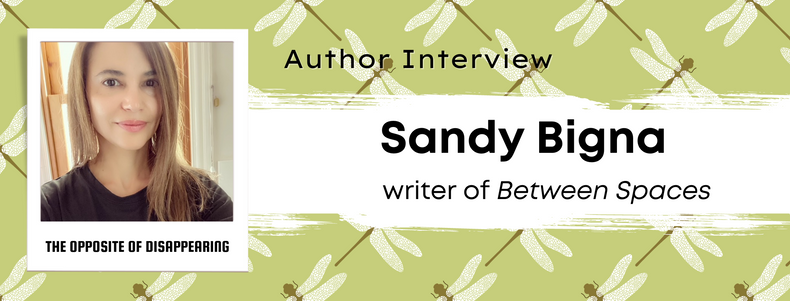Writer of Between Spaces
1. Other than the theme for the anthology, what was your inspiration for your short story?
My inspiration for Between Spaces came from reading an article about 'dumpster diving.' It unsettled me (and still does!) that so many items go to landfill when they could be fixed or re-homed. This inspired an idea to write a story which would gently introduce readers to the concept of sustainable living and trying to reduce landfill. Somehow this concept sparked a further story idea about a teenager who - like the discarded items found in dumpsters - feels in between spaces, a bit shabby and unwanted and not quite belonging anywhere. Luckily this idea seemed to fit perfectly with the theme of this anthology!
2. Did you learn anything from writing your story? Is there something you hope people will learn when they read it?
I did! I learnt quite a bit about the amount of waste that goes into dumpsters every day (even perfectly good food thrown into dumpsters by supermarkets!) I hope that reading this story will inspire an awareness about recycling items instead of simply throwing them out. But, mostly, I'd like my readers to learn about the power of hope and kindness, because these qualities are ultimately what makes us human. The kindness Darcy shows to Tiger when he moves into the apartment complex offers him a glimpse of hope.
3. How did your character/s come to you? Were they difficult, were they easy?
The characters of Tiger and Darcy came to me very easily – I had a very strong visual image of a dumpster-diving girl in clothes with colourful patches sewn onto them. This character became Darcy – who was initially going to be the narrator of the story. But then, somehow, the voice of Tiger - a lonely boy who has just moved into the apartment complex - became louder, and he ended up taking over as narrator. I also had an instant very strong visual image of Darcy's mum Ange – her colourful personality flickering into life and injecting warmth and light into the narrative.
4. What kind of writing style or preferences do you have? Are they similar to your short story?
I have a strong affinity with first person present tense narratives. I naturally tend to gravitate towards this in both my own writing, and the material I select for reading. I feel that first person present tense adds an immediacy to the voice of a young adult narrative which is compelling and engaging. When I started writing Between Spaces, I wanted the reader to feel privy to the interior thoughts of the teen narrator – and so a first person narrative seemed to work well, offering an intimacy that a second person tense might not have been able to achieve. I did find as I wrote, however, that I switched from present tense to past tense – so it reads as if the narrator is looking back on the events that have occurred, and this seemed to suit the story that was being told, so I stuck with it.
5. Do you have a favourite genre that you love to read?
My passion is young adult contemporary fiction. I naturally gravitate to books written in this genre – I love becoming immersed in the teen experience (and feel like I am re-living my youth by living vicariously through the teenagers in the book!) I love that teen fiction offers the reader (and writer) so many first experiences – first love, first heartbreak, first successes. These first experiences can be filled with so much emotion and angst, which makes for compelling reading.
6.Without giving too much away, could you tell us a little about your short story?
Between Spaces is about a teen who has just moved into a run-down apartment complex with his mum. The teen gives some initial hints as to what situation he and his mum have escaped, and why they need to lie low for a while. The teen narrator – Tiger – is feeling a sense of disorientation - he’s had to leave his home and his friends behind, and he’s struggling with his sense of belonging and identity. However, when Tiger meets one of the residents of the apartment complex – a dumpster-diving girl named Darcy – he starts to see glimpses of light in the dark, and the possibility of finding a way back to himself.
________________________________________________________________________________
Buy a copy of The Opposite of Disappearing and dive in!

